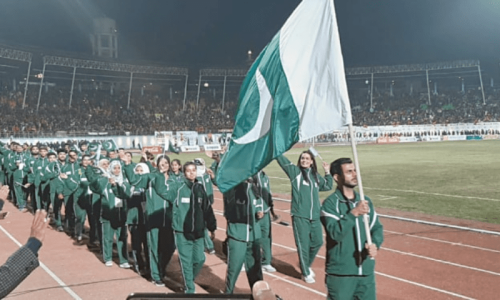NO more negotiating, no more compromises, the time for talking is over – if the PTI core committee’s decision on Saturday is to believed, the country can brace itself for a period of intense political instability starting Aug 14, the day of the planned PTI rally in Islamabad.
Even now though the PTI has stopped short of explicitly stating its goals. While party leaders continue to talk about electoral reforms and the need for re-examining last year’s election results, the final objective has perhaps deliberately been left vague so that final “decisions will be made after the arrival of the Azadi march in Islamabad on Aug 14”, according to a party press release.
Time for talks with govt over, says PTI
What that translates into is seemingly an implicit threat – if the numbers on Aug 14 are large enough, will the PTI leadership be encouraged to go for the kill and seek the overthrow of the government? Surely, it is no longer enough for the PTI to say that it only wants change and reforms within the ambit of the Constitution, especially since it is the PTI itself that is attacking the democratic credentials and legitimacy of the PML-N government in Islamabad.
The fact that battle lines are being drawn does not mean that good sense can no longer prevail. For the PTI core committee to repose confidence in its leader and fully back his destabilising political quest is hardly surprising – there is really no party in Pakistan democratically evolved enough yet to challenge its leader once the leader’s wishes are clear. But that still leaves Imran Khan and Prime Minister Nawaz Sharif with time to avert a return to the dreaded political instability of the 1990s.
From a systemic perspective, Mr Khan’s unwillingness to accept the overall results of last year’s general election has a possible upside: the PTI’s disbelief after being electorally swept aside in Punjab can be channelled into genuine electoral reforms.
Yet, for that to happen the PTI chief must be willing to present a workable set of options that can be considered by parliament. Demanding a national audit of the elections does not amount to a practical suggestion. If on or before Aug 14 Mr Khan avoids getting swept up in the excitement of masses on the streets, there is serious business that can yet be done.
The other side of the equation is of course the government itself and specifically the prime minister. In the weeks ahead may lie precisely the kind of political events and moments in which a thrice-elected prime minister is expected to shine. Poise, common sense and a determined look fixed on the real goal – deepening the democratic project and making it more responsive to the public’s needs – is what Mr Sharif will need.
Published in Dawn, July 28th, 2014










































